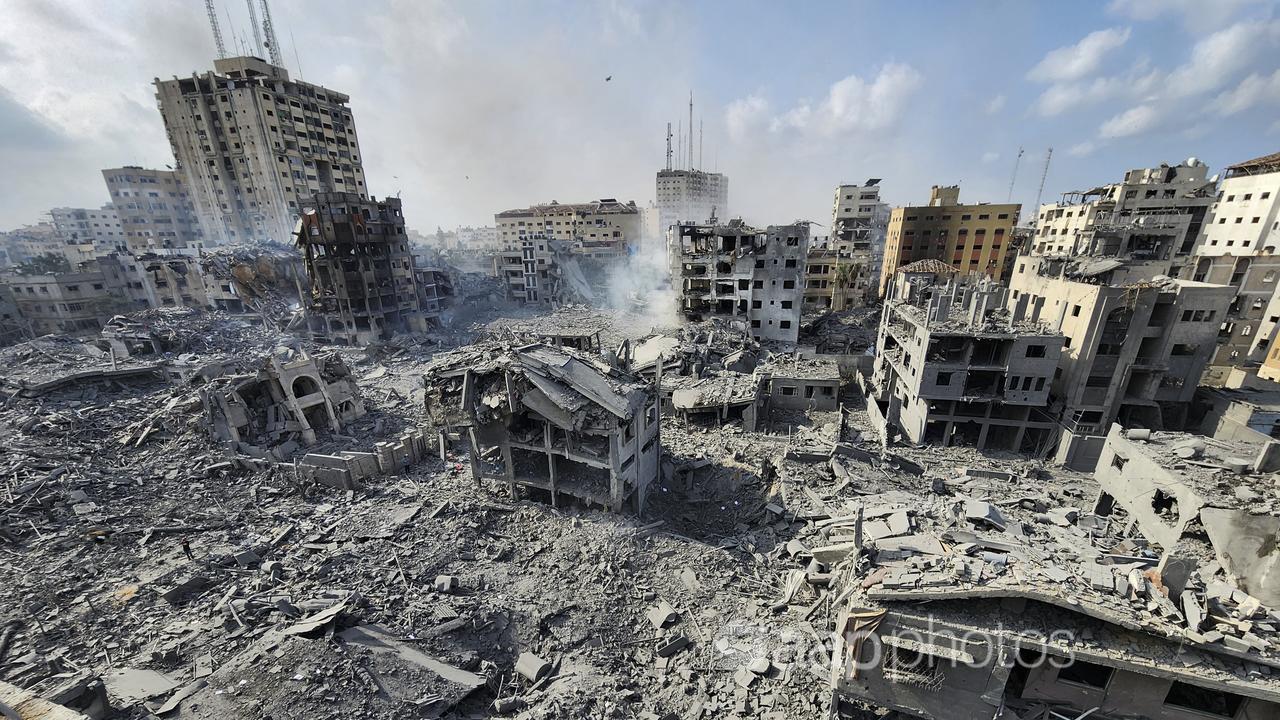The Statement
A Facebook post claims Germany’s year-on-year death toll has not risen despite the COVID-19 pandemic striking during 2020.
The January 13 post, by a user in Australia, features what appears to be a copy of a post on the 9 News Australia Facebook page.
The image on the 9 News story features several caskets, including some with ‘Covid’ written on them, and the headline, “Caskets stacked three high at crematorium in Germany’s virus hot spot.”
Written above the image of the caskets is: “The crematorium would typically have 70 to 100 caskets on site at this time of year but there are now 300 bodies waiting to be cremated.”
Accompanying the image is a caption from the user which reads: “FAKE NEWS. Germany’s year on year death toll has not risen. There are simply more people being cremated as they DO NOT want autopsies on these bodies to find the true cause of death. FACTS!”
At the time of writing, the post had been shared more than 80 times and had more than 15,000 views.

The Analysis
Germany has been hit hard by the COVID-19 pandemic with more than two million confirmed cases of the virus and nearly 53,000 deaths, according to figures published by the World Health Organization on January 26.
The Facebook post displays an apparent screenshot linked to a 9 News Australia article. That January 13 story, by The Associated Press, details how caskets had been stacked three high in the memorial hall of the Meissen crematorium in Saxony, eastern Germany, following a surge of coronavirus deaths.
The article said the crematorium would typically have 70 to 100 caskets on site at that time of year, when the winter flu season usually takes a toll on the elderly. But this year there were 300 bodies waiting to be cremated and dozens more being delivered each day, it said.
While the post claims that “Germany’s year on year death toll has not risen”, provisional results from the country’s federal statistical office, Destatis, showed mortality figures in 2020 were higher than in any of the preceding four years.
Data included in the Destatis update shows a total of 972,155 people were reported dead across the 52 weeks of 2020. That was 40,973 higher than the 2016-2019 average deaths for the same time period, an increase of four per cent.
The overall rise came despite the number of deaths in the first 10 weeks of 2020, before the pandemic began causing mass fatalities in Germany, being significantly lower than the 2016-19 average.
The 2020 death toll was four per cent higher than in 2019, two per cent higher than 2018, five per cent higher than 2017 and seven per cent higher than 2016. The 52-week tally for 2020 included 35,415 COVID-19-related deaths.
Destatis said that since October the number of people who died and who had laboratory-confirmed COVID-19 had been rising steadily from week to week.
In week 52, 5040 COVID-19 deaths were reported to German government agency for disease control and prevention, the Robert Koch Institute. That was an increase of 352 compared with the preceding week.
The provisional results showed at least 24,470 people died in Germany in Week 52 (December 21-27, 2020), 5832 higher than the 2016-2019 average – or an increase of around 31 per cent.
Destatis noted: “Up-to-date information on the number of deaths can be provided with a delay of about four weeks. The results available for 2020 will increase slightly on account of late reporting.”
The statistics agency has been conducting a special evaluation of provisional death figures in Germany to monitor whether COVID-19 will lead to excess mortality in the country.
In an update on January 22, Destatis said: “By calendar week in 2020, there have continuously been significantly increased mortality figures compared with the average across 2016 to 2019 from Week 13 to Week 18 (23 March to 3 May).
“The deviation was largest in Week 15 (6 to 12 April) with 15% more deaths compared with the four-year average. Also, the number of COVID-19 deaths reported to the Robert Koch Institute (RKI) was then highest in that week.”
Over the month of April, the number of deaths was 10 per cent above the average across the previous years. In August, during which there was a heat wave, the figure was seven per cent higher. In October, it was five per cent higher, and in November, 12 per cent higher.
German broadcaster Deutsche Welle (DW) published a fact check in November 2020 that explored the question, “Are more people dying than usual?”
“Yes. As in many other countries, more people will die in Germany in 2020 than in previous years,” DW wrote, referencing data from Destatis.
“The spread of the coronavirus has led to a clearly discernible excess mortality rate, or the number of all deaths exceeding the annual historical average at a given time.”
AAP FactCheck has previously addressed similar false claims about excess deaths in 2020 due to COVID-19 in the United States.
The Verdict
The post incorrectly claims Germany’s year-on-year death toll has not risen.
Provisional results by Germany’s federal statistical office, Destastis, show mortality figures in 2020 were significantly higher than for any of the preceding four years. The death rate from COVID-19 has continued to rise approaching January.
False – Content that has no basis in fact.
* AAP FactCheck is an accredited member of the International Fact-Checking Network. If you would like to support our independent, fact-based journalism, you can make a contribution to AAP here.
All information, text and images included on the AAP Websites is for personal use only and may not be re-written, copied, re-sold or re-distributed, framed, linked, shared onto social media or otherwise used whether for compensation of any kind or not, unless you have the prior written permission of AAP. For more information, please refer to our standard terms and conditions.


















